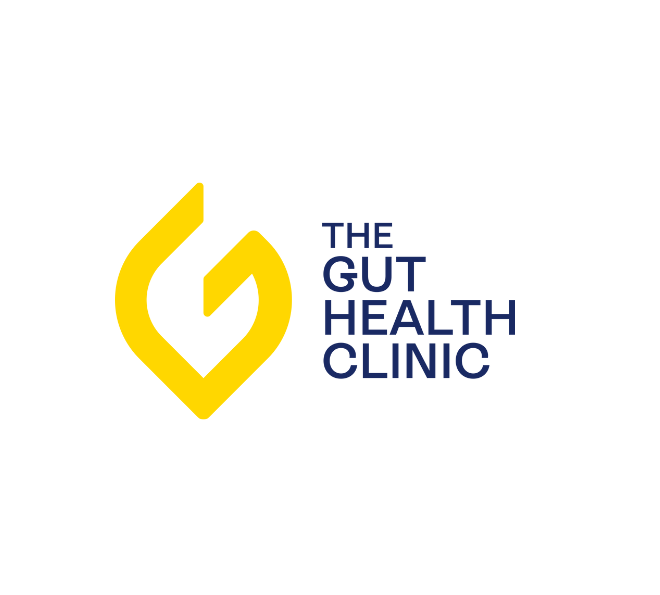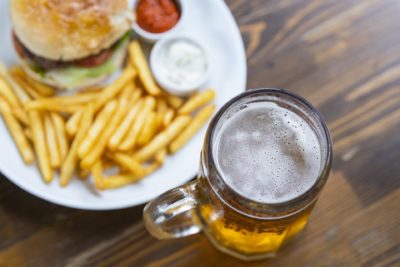
The Gut Health Clinic
Specialist expertise: Inflammatory Bowel Disease, Nutrition.
As with any cancer, bowel cancer requires patients to have specific lifestyle changes, with diet being a primary example. Lucy Kerrison at The Gut Health Clinic takes a look at the role food plays when considering a bowel cancer diagnosis.

As with any cancer, bowel cancer requires patients to have specific lifestyle changes, with diet being a primary example. Knowing what foods are a risk factor and which can help when someone has been diagnosed are essential.
When we treat patients at OneWelbeck, we provide an end-to-end patient experience that not only looks at treatment, but lifestyle aspects, including diet.
Let’s take a look at the role food plays when considering a bowel cancer diagnosis.
We know a diet high in plant-based diversity and fibre can be protective for the gut.
We are aiming for 30+ plant-based products per week, a step up from the old-fashioned 5 fruit and veg per day recommendation!
Plant-based products are not limited to fruits and vegetables, they include:
We know foods that are high in omega 3’s such as oily fish, flaxseed and walnuts, also have anti-inflammatory properties and can be protective in terms of gut health and bowel cancer. (1)
There isn’t a specific food which is an automatic warning that someone will get bowel cancer, but there are diet choices which, when compounded with other factors, can aid in the development of the illness.
If someone has a low-fibre, high-fat diet, it may pose a risk. A lot of red meat and processed meat is thought to be a higher risk diet. This can lead to low level inflammation and negative changes in the microbiome. Pro-inflammatory diets are associated with a higher risk of developing colon cancer.
Overeating and maintaining a higher level of body fat can also promote low level inflammation around the body, which can be a risk factor for colon cancer development. Eat a nutritious diet and maintain a healthy body weight to reduce your risk. (1)
Diet can be a great tool to support cancer treatment. When someone is receiving chemotherapy of radiotherapy, their energy requirements are higher, so obtaining enough energy and protein in the diet is essential. There is even early research to suggest the gut microbiome could be implicated in the efficacy of cancer treatment, a more diverse or healthy set of gut bacteria, could improve treatment response. (2)
If surgery is required, diet can be adapted before and after, in order to improve response, recovery time and to aid absorption of nutrients post-surgery. This is best looked at with a specialist dietitian.
The less processed, the better as far as diet is concerned. Red meat and processed meat should be reduced significantly, in favour of a diet rich in plant-based products and, if you’d like to include it, oily fish. This includes salmon, fresh tuna, mackerel, herring, sardines and pilchards.
Processed doesn’t just refer to meat products. It also includes the likes of fizzy pop, sweets, and desserts.
High levels of alcohol and smoking should also be avoided.
Foods to increase will depend upon where you are in your treatment journey and any gut symptoms you are experiencing.
Generally speaking, protein, energy and fibre intake are important. We know that increasing the diversity of your gut microbiome with a diverse and plant-based or Mediterranean diet can be helpful.
Choose ‘smart snacks’ which include a source of fibre and protein or healthy fats, for example:
It is also a good time to get the pantry stocked with mild herbs. Some treatments have the effect of tampering with a patient’s taste buds, and mild herbs & spices help to bring some flavour in, while keeping the need for salt to a minimum.
Heading into surgery, studies suggest carbohydrate loading can improve outcomes and recovery time. Post-surgery you will also have higher protein and energy requirements to help with tissue repair. The type of foods you eat post bowel surgery may change significantly, especially immediately following surgery. You may follow a lower fibre diet temporarily. This should be discussed with your surgeon or dietitian.
There can be a lot of scaremongering around diet and cancer. There is a myth that sugar ‘feeds’ cancer, when in fact we know sugar feeds all of our cells (cancerous or non-cancerous), so completely avoiding sugar is not beneficial when it comes to cancer care.
When it comes to specific changes, our dietitians from the Gut Health Clinic within OneWelbeck will provide diet and nutritional advice to aid with treatment.
Visit our bowel cancer page, where you will find information on the causes and symptoms, along with information regarding diagnosis and treatment at OneWelbeck.
Please feel free to get in touch with OneWelbeck Digestive Health directly if you have any questions regarding bowel cancer screening or any cancers we specialise in.
You can call the clinic on 0203 653 2009, or book an appointment using our contact us form.
(1) Jakszyn, P., Cayssials, V., Buckland, G., Perez‐Cornago, A., Weiderpass, E., Boeing, H., Bergmann, M.M., Vulcan, A., Ohlsson, B., Masala, G., Cross, A.J., Riboli, E., Ricceri, F., Dahm, C.C., Nyvang, D., Katzke, V.A., Kühn, T., Kyrø, C., Tjønneland, A. and Ward, H.A. (2020). Inflammatory potential of the diet and risk of colorectal cancer in the European Prospective Investigation into Cancer and Nutrition study. International Journal of Cancer, 147(4), pp.1027–1039. doi:https://doi.org/10.1002/ijc.32870.
(2) Yi, Y., Shen, L., Shi, W., Xia, F., Zhang, H., Wang, Y., Zhang, J., Wang, Y., Sun, X., Zhang, Z., Zou, W., Yang, W., Zhang, L., Zhu, J., Goel, A., Ma, Y. and Zhang, Z. (2021). Gut Microbiome Components Predict Response to Neoadjuvant Chemoradiotherapy in Patients with Locally Advanced Rectal Cancer: A Prospective, Longitudinal Study. Clinical Cancer Research, [online] 27(5), pp.1329–1340. doi:https://doi.org/10.1158/1078-0432.ccr-20-3445.
Foods to prevent bowel cancer
Can foods prevent bowel cancer?
What foods can cause bowel cancer?
Why would changing diet matter when someone has bowel cancer?
What foods should be avoided after a bowel cancer diagnosis?
What foods should be eaten after a bowel cancer diagnosis?
Does sugar feed cancer?
What other aspects of a diet change?
Want more information on bowel cancer?
Have any questions? Get in touch
References
Here at OneWelbeck, we have a team of gastroenterology specialists, state of the art facilities and diagnostics, and highly competitive financial packages for self-funding patients as well as those with private health care.
Digestive HealthThe Gut Health Clinic team are gut specialist registered dietitians and join OneWelbeck to support patients with a wide range of health concerns from diabetes to digestive problems and women’s health.